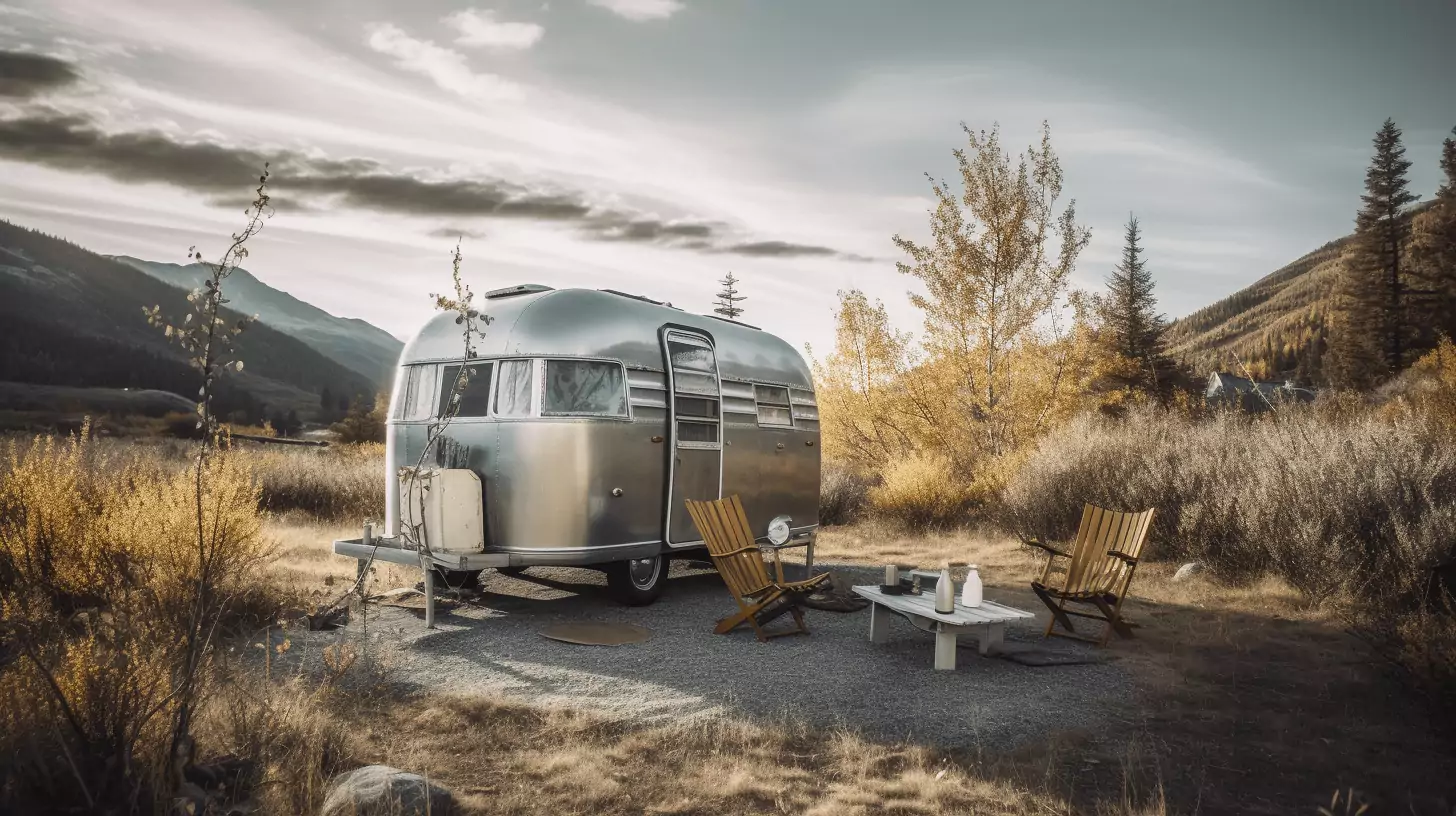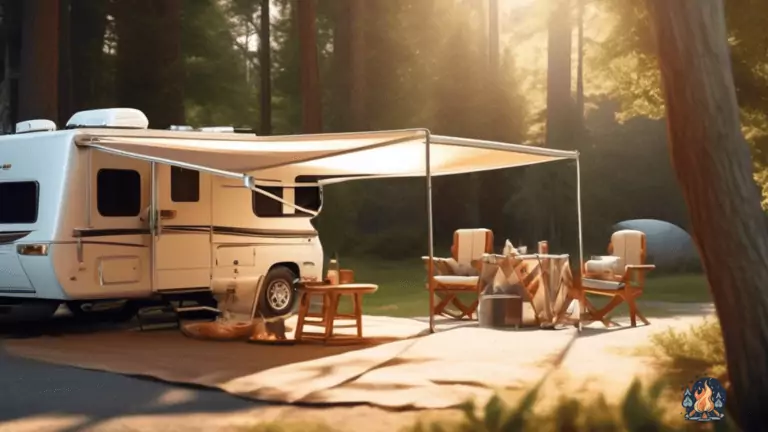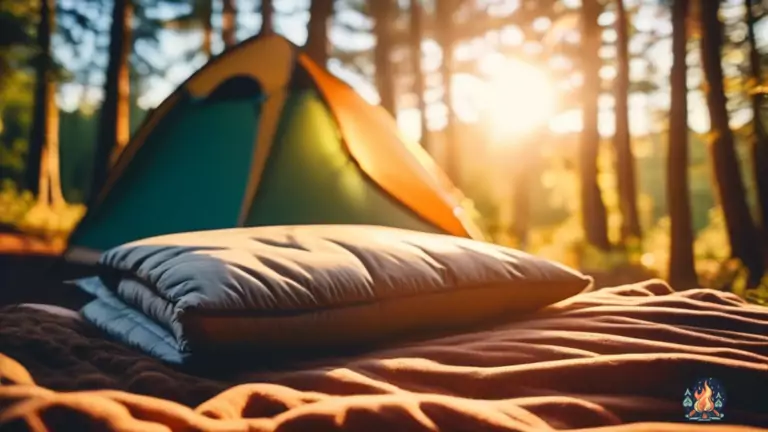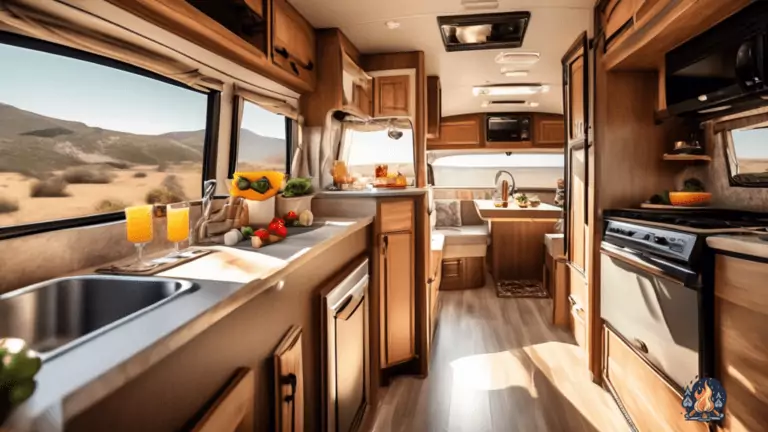What Is Dry Camping
by Ryan Carter • Updated: January 30, 2024
Discover the freedom of dry camping! Learn how to camp off-grid, save money, and explore the great outdoors like never before.

If you’re looking to get away from it all and connect with nature, dry camping might be right up your alley. But what exactly is dry camping? Simply put, it’s camping without any hookups to water, electricity, or sewage. This means you’ll need to rely on your own resources and equipment to make your stay comfortable and enjoyable.
While it may seem daunting to some, dry camping has its own unique charm and benefits. For one, it allows you to truly unplug and disconnect from the hustle and bustle of everyday life. Plus, it often means staying in more remote and beautiful locations that you wouldn’t be able to access with a traditional RV or camper. However, it’s important to be prepared with the right equipment and knowledge to ensure a successful dry camping experience.
Definition of Dry Camping
Dry camping, also known as boondocking, is when you camp in a location without access to water, electricity, or sewer hookups. This means that you must bring all your own supplies and be self-sufficient during your camping trip. Dry camping locations are often found in national parks, state parks, or other remote areas where there are no facilities available.
While dry camping may seem daunting to some, it can be a great way to disconnect from the hustle and bustle of modern life and enjoy the simplicity of nature. It also allows for more flexibility in choosing your campsite, as you are not limited to areas with hookups. However, it is important to be prepared and have a plan in place for conserving resources such as water and electricity, as well as properly disposing of waste.
Pros and Cons of Dry Camping
If you’re looking to disconnect from technology and immerse yourself in nature, you may want to consider the pros and cons of camping without hookups. Dry camping, also known as boondocking, involves camping without access to electrical, water, or sewer hookups. While this type of camping can offer a unique and rewarding experience, it’s important to weigh the pros and cons before embarking on a dry camping trip.
One of the biggest pros of dry camping is the freedom it provides. Without the need to be tethered to electrical or water hookups, you can camp in more remote and picturesque locations. Additionally, dry camping is often cheaper than camping with hookups, as there are no fees associated with the use of amenities. However, there are also some downsides to dry camping, including the need to be self-sufficient. You’ll need to bring your own water, food, and supplies, and you’ll need to be mindful of your power usage to avoid running out of battery power. Additionally, without access to a dump station, you’ll need to properly dispose of your waste, which can be a challenge. Overall, dry camping can be a rewarding experience for those looking to disconnect and explore nature, but it’s important to be prepared and weigh the pros and cons before embarking on a dry camping trip.
Essential Equipment and Supplies
One must pack all the necessary gear and supplies for a successful trip in the great outdoors. When it comes to dry camping, it’s important to remember that you won’t have access to amenities such as electricity, running water, or waste disposal facilities. Therefore, it’s crucial to bring enough water for drinking, cooking, and cleaning, as well as a portable water filtration system or purification tablets. A portable toilet and waste disposal bags are also recommended to ensure a clean and responsible experience.
In addition to water and waste management supplies, there are other essential equipment and supplies to consider. A reliable tent, sleeping bag, and camping stove are must-haves for any camping trip. However, when dry camping, it’s important to choose a stove that operates on propane or other fuel sources, as you won’t have access to electrical outlets. A cooler with ice packs or dry ice will also keep your food fresh and prevent spoilage. Finally, don’t forget to bring a first aid kit, insect repellent, and a map and compass or GPS device to ensure a safe and enjoyable trip.
Finding Suitable Dry Camping Locations
Scouting out ideal spots for setting up camp without access to traditional amenities can be an exciting adventure for outdoor enthusiasts. However, it is important to do some research beforehand to ensure that the location chosen is safe and legal for camping.
One option for finding suitable dry camping locations is to check with the Bureau of Land Management (BLM) or the U.S. Forest Service. These agencies often have designated areas for dispersed camping, which allows for camping in undeveloped areas without amenities. Another option is to look for private landowners who allow camping on their property, through websites such as Hipcamp or through personal connections. It is important to always ask for permission before setting up camp on private land.
Overall, it is important to be respectful of the environment and follow Leave No Trace principles when dry camping. This includes packing out all trash and avoiding damage to the natural surroundings. With a little bit of research and preparation, finding a suitable dry camping location can lead to a unique and rewarding camping experience.
Tips for Successful Dry Camping Experiences
Preparing beforehand can lead to enjoyable experiences without access to amenities such as water and electricity. Here are some tips to help make your dry camping experience successful:
- Bring Enough Water: Since there won’t be any access to water, it’s important to bring enough water for drinking, cooking, and cleaning. Bring more than you think you’ll need, just in case.
- Consider Solar Power: If you plan on staying for a few days, investing in a solar panel can be a great way to have access to electricity without needing to use a generator. This can help keep the noise level down and it’s also better for the environment.
- Be Mindful of Waste: Since there won’t be any garbage or sewage disposal, it’s important to be mindful of waste. Bring garbage bags and pack out everything you bring in. Be sure to properly dispose of any human waste as well, using a portable toilet or digging a hole at least 6 inches deep and at least 200 feet away from any water sources.
By following these tips, you can have a successful and enjoyable dry camping experience.
Can Stealth Camping Techniques Be Applied to Dry Camping?
Stealth camping explained now: While stealth camping is about keeping a low profile in off-grid locations, the same principles can be applied to dry camping. Both require self-sufficiency and a minimal footprint. Using similar techniques, dry campers can find secluded spots and minimize their impact on the environment.
Frequently Asked Questions
How do I dispose of waste while dry camping?
To dispose of waste while dry camping, you can’t rely on traditional plumbing systems. Instead, you’ll need to bring a portable toilet or dig a hole for human waste and pack out any other trash.
Is it safe to dry camp alone?
It can be safe to dry camp alone, but it depends on the location and your level of experience. Make sure to research the area beforehand and take necessary safety precautions.
Can I use a generator while dry camping?
Yes, you can use a generator while dry camping. However, it’s important to follow proper safety precautions and be mindful of noise levels to avoid disturbing other campers.
How do I conserve water while dry camping?
To conserve water while dry camping, limit showers to every other day, use biodegradable soap, and opt for dry shampoo. Cook with minimal water and bring a water filtration system for drinking.
Are there any restrictions on campfires while dry camping?
There may be restrictions on campfires while dry camping depending on the location and weather conditions. It is important to check with local authorities and follow any guidelines to prevent wildfires.
Conclusion
In conclusion, dry camping is a great way to experience the great outdoors and disconnect from the hustle and bustle of everyday life. While it does come with its own set of challenges, the benefits of being self-sufficient and exploring remote locations make it a popular choice for many outdoor enthusiasts. With the right equipment, supplies, and knowledge, anyone can enjoy a successful dry camping experience.
So, whether you’re a seasoned camper or a beginner, give dry camping a try and see what adventures await you off the beaten path. Remember to always practice Leave No Trace principles and respect the natural environment. Happy camping!

Ryan Carter is a passionate RVer and adventure seeker. He has embarked on numerous cross-country road trips, discovering hidden gems and breathtaking landscapes along the way. Ryan enjoys documenting his experiences, providing practical advice, and reviewing the latest camping gear. From boondocking in remote locations to navigating national parks, he’s always ready for the next exciting camping adventure.
Like This Article?
Share with your friends
Table of Contents
Latest Articles
Keep Reading
-
Mastering RV Awning Setup: Tips For Beginners
Looking to master RV awning setup? Get expert tips and advice for beginners to make your camping experience a breeze. Click now for hassle-free RV awning setup tips!
-
Sleep Comfortably With A Camping Cot
Sleep like a dream on your next camping trip with a comfortable camping cot. Learn how to make rough nights in the wilderness a thing of the past and rest easy under the stars. Say goodbye to uncomfortable sleeping arrangements – click here for the ultimate camping cot guide!
-
Quick And Easy RV Dinner Ideas For Delicious Meals On The Road
Tired of bland meals on your RV trips? Discover these mouthwatering quick and easy RV dinner ideas that will satisfy your taste buds on the road. Click now for delicious meals to make your adventures even more memorable!



